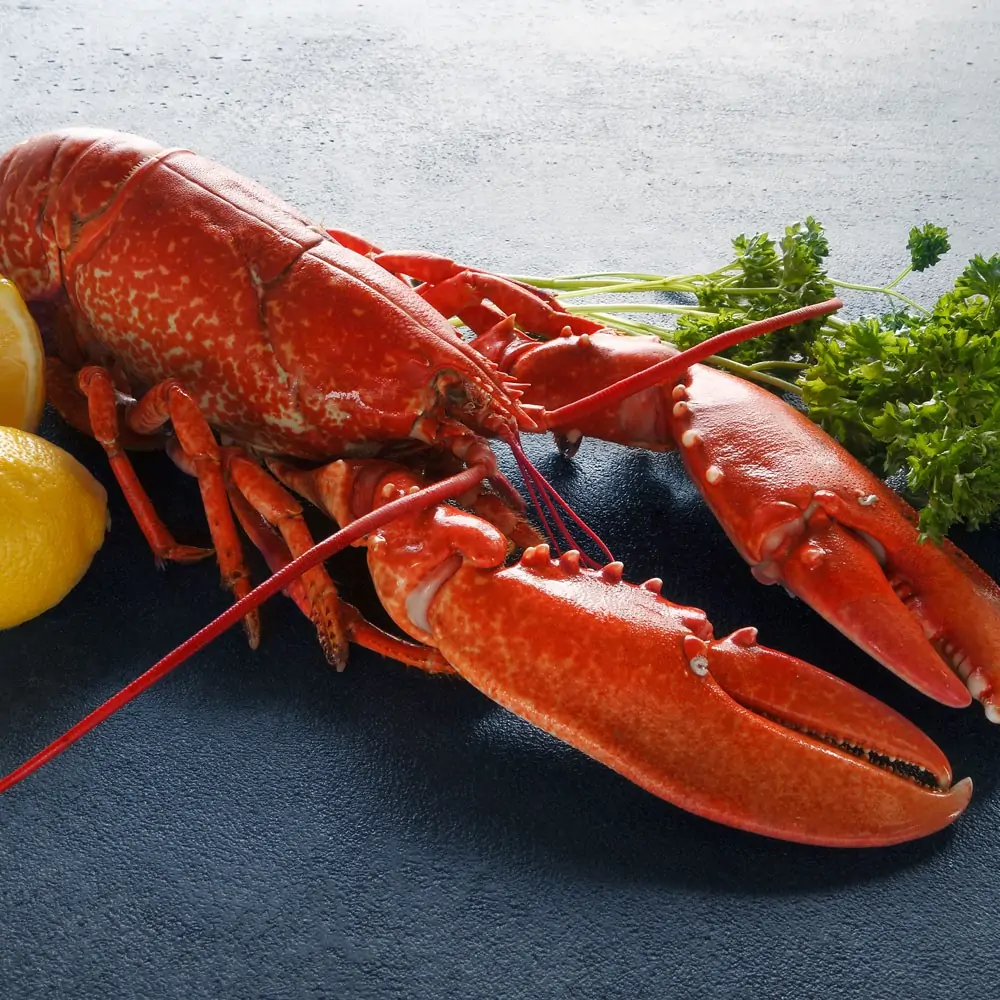Description
Origin:
Lobsters are marine crustaceans found in cold and warm ocean waters. They are highly valued as seafood and are a delicacy in many cultures, particularly in Western countries. Lobsters were once considered a poor man’s food and were even fed to prisoners in the 19th century.
They have a unique flavor that is both sweet and savory, with a firm texture.
Other Names:
Yoruba: alákàṣa
Igbo: ọchịcha mmiri
Hausa: Jatan ruwa mai wuyar samuwa
Health Benefits:
High in protein and low in fat, making them a lean source of protein.
Rich in selenium and zinc, supporting immune function and metabolism.
Provides omega-3 fatty acids, which promote heart health.
Nutritional Information (per 100g):
Calories: 89 kcal
Protein: 19 g
Fat: 0.8 g
Zinc: 1.9 mg (17% of Daily Value)
Omega-3 Fatty Acids: 0.2 g
Fun Fact: Did you Know?
Eating lobster isn’t likely to cause weight gain. It contains fewer calories compared to other foods and especially compared to meat. If you want to avoid gaining too much weight while on holiday, then this is a great food to focus on.
Uses:
Commonly boiled, grilled, or steamed, and served with butter or in dishes like lobster rolls and bisques.
In Nigeria, lobsters are often grilled or used in seafood stews.
Recipes & Videos:
International Recipe: Lobster Bisque Video: How to Make Lobster Bisque
Local Recipe: Nigerian Lobster Pepper Soup Video: Nigerian Lobster Pepper Soup Recipe
Best Storage Method: Store live lobsters in the fridge with damp newspaper or freeze-cooked lobsters.
Shelf Life:
In the fridge (live): 1-2 days.
In the freezer (cooked): 9-12 months.

 Cart is empty
Cart is empty 










Reviews
There are no reviews yet